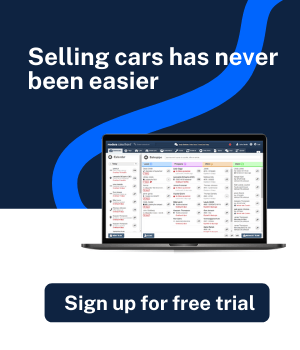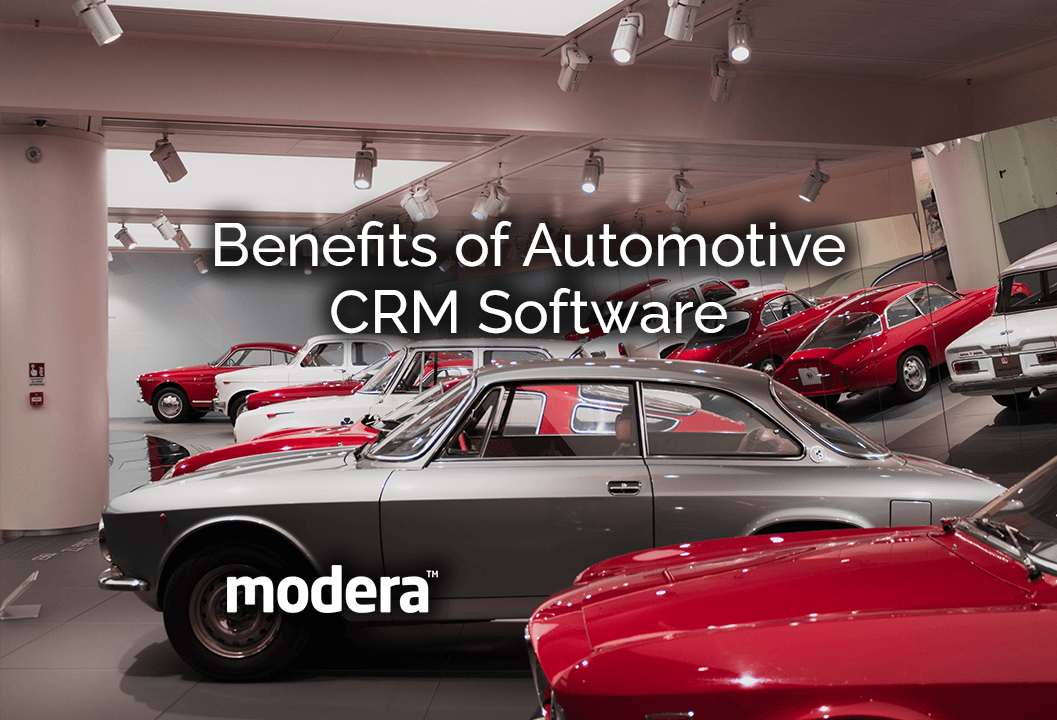
With the automotive industry growing and customer expectations changing rapidly, it is high time for car dealerships to find a lucrative way to manage leads, uncover new ones, and keep customers happy. A CRM platform provides an organized system for tracking prospects and making connections in the automotive industry.
What is CRM software?
CRM, short for Customer Relationship Management, is essentially a digital platform that helps to manage relationships between customers and prospects. For businesses, it can be extremely helpful for streamlining, organizing, and automating operations. It gives businesses a clearer insight into customer behavior, to better understand their requirements and manage expectations.
CRM software is necessary for displaying actionable data, and turning that into comprehensive insights, improving team communication, sales and contact management, establishing customer rapport, offering personalized experience to build customer loyalty, and boosting profitability and productivity.
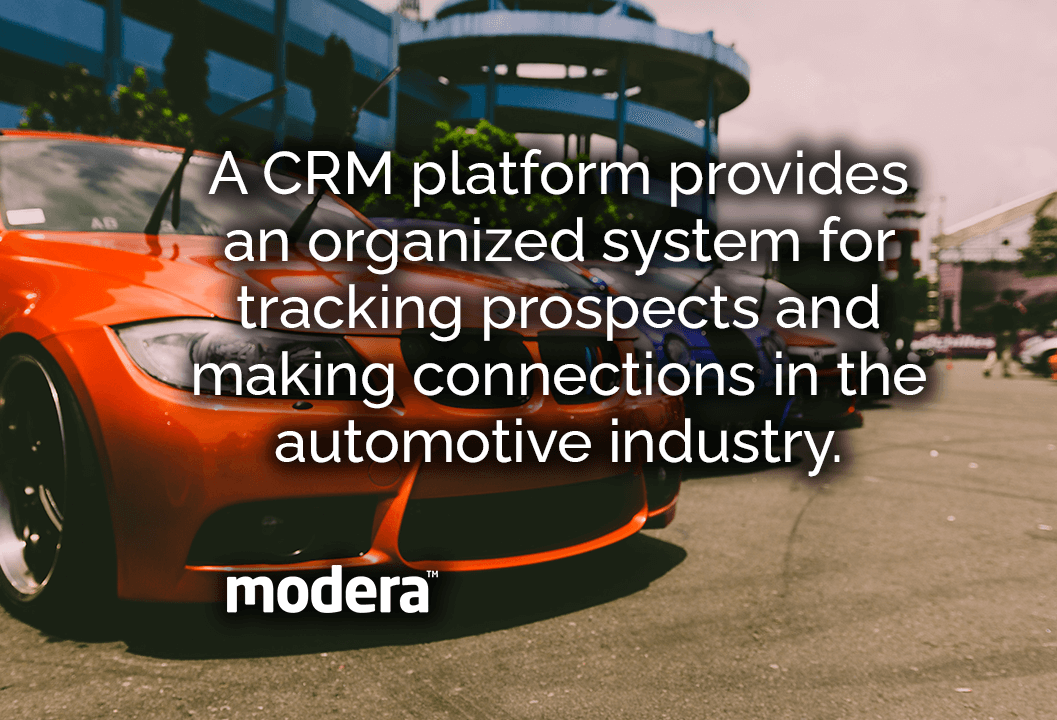
Benefits of an automotive CRM
Managing customer life cycles
There are numerous stages of a customer’s life cycle when it comes to automobile dealers. It involves collecting and sorting leads, facilitating finance schemes, convincing customers to go for test drives, following up for after-sales services, keeping them appraised about offers, and so on. Every stage needs to be tracked, so you can ensure it is being done within the specified service-level agreement (SLA). With a CRM system, when people fill in data about work done in regards to the particular activity, leaders and management can monitor SLAs and take appropriate action to improve business efficiency.
Boosting call quality
Car dealerships have two primary goals – increasing sales and providing better customer support. That is why consistent tele-calling is important, irrespective of the size of the business. But telecallers should be monitored as well, to ensure they are delivering what is expected of them. Automotive CRMs come with in-built agent monitoring features that empower leaders to track calls and improve quality of the tele-calling team. For instance, leaders can track average handling times per call, logged-in time and occupied time, sent and received calls, and much more. They can even listen to both live and recorded calls to identify areas of improvement.
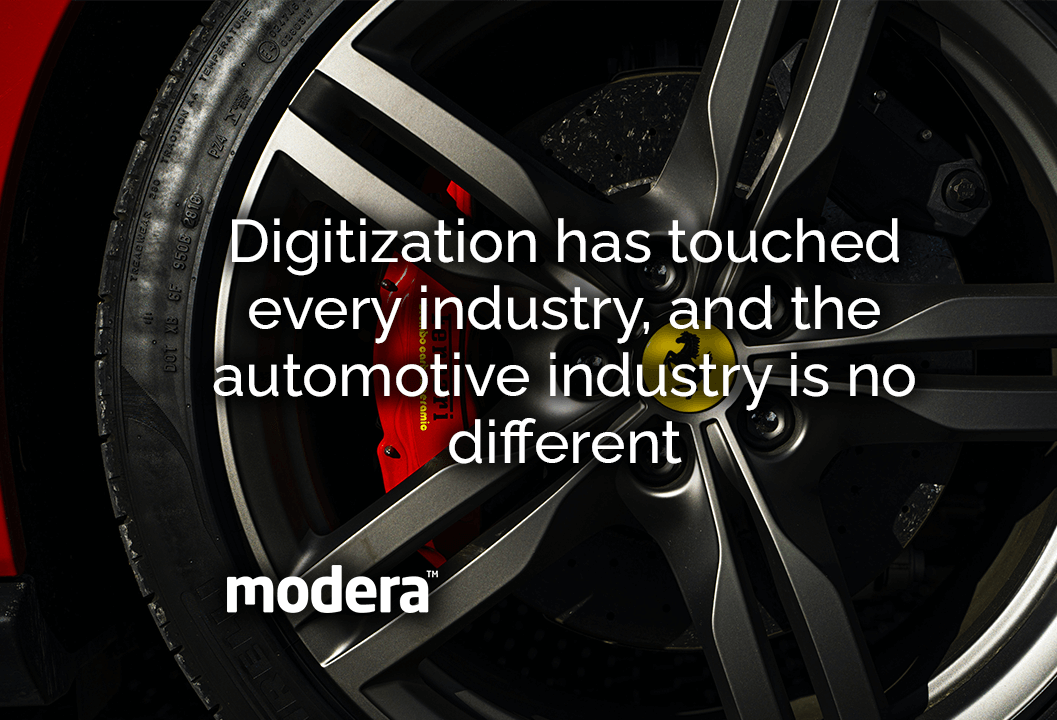
Analyzing customer data
You might have accumulated humongous amounts of customer data but if you don’t know how to work with it, the entire chunk is useless. A business needs to capture customer data, store it in a central repository, and then draw insights to understand how they can boost sales. With an advanced automotive CRM, car dealerships can not only enter data, but get access to intelligent dashboards to analyze it. Leaders get to figure out lucrative offers for specific segments based on age, gender, income levels, preference, and so on. These valuable insights can be used to devise targeted marketing campaigns for each segment, upsell and cross-sell, and get better ROI for their efforts.
Processing customer feedback
When customers are unhappy, they won’t just leave your business, but they will also tell people about how poor their experience was. Even worse, they might end up recommending your competition to their closed circle of friends and acquaintances. Needless to say, it negatively affects the reputation of your business, which is why customer feedback is vital. Acting on this feedback is essential if businesses want to stand apart in today’s competitive world. Businesses should use customer feedback that can be collected and analyzed via a CRM system, to understand what customers really want and improve processes.
Working on referrals
Be it any industry, referrals play a crucial role. When a customer is delighted with a particular service, they are bound to provide car dealerships with a referral. The problem is most car dealerships don’t ask for referrals, so this aspect is generally ignored. But with an auto dealership CRM solution, businesses can make it standard procedure to collect referrals from satisfied customers and then follow up on these to increase sales.
Automating tasks
Manual tasks are being steadily replaced thanks to the advent of sophisticated technology. Businesses and brands are automating numerous tasks so they can divert resources and focus on key tasks such as maintaining healthy customer relations and increasing output. With an automotive CRM you can send automated reminders to customers for insurance renewal, vehicle servicing, new offers, and so on. Staff gets notified to follow up with customers regarding these reminders, while leaders can track if their employees have done the needful. It reduces room for human error and dependence on human memory and accuracy, to complete mundane yet significant tasks.
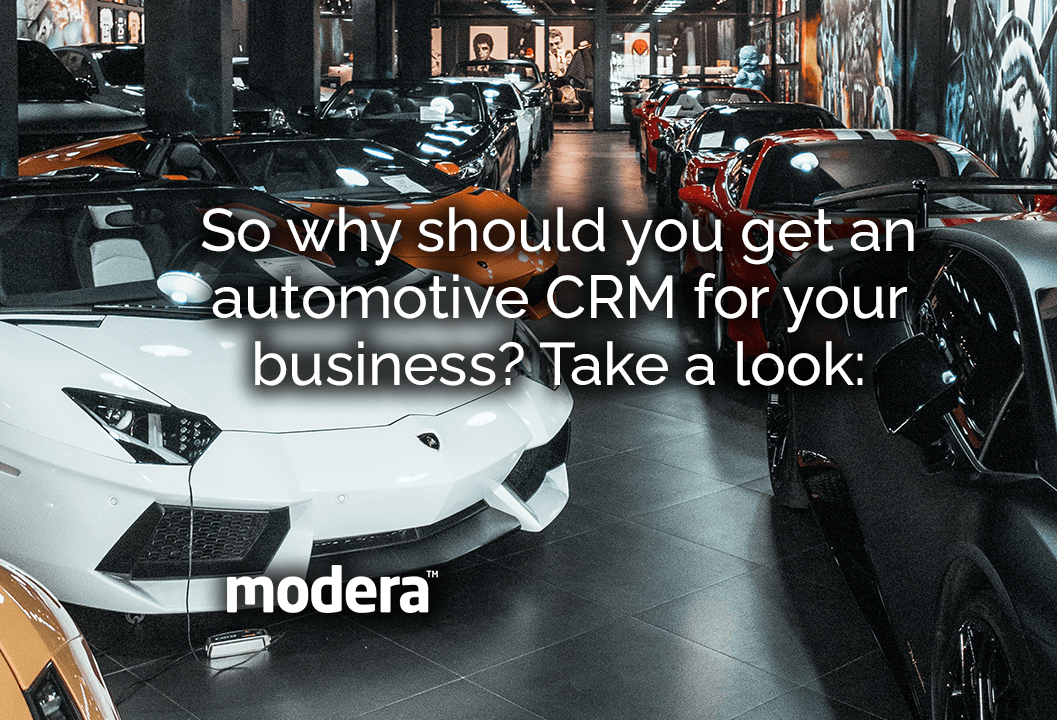
So why should you get an automotive CRM for your business? Take a look:
- Manage leads – it helps you keep track of sales regardless of where they come from, be it online channels, over the phone, third parties, or walk-ins.
- Nurturing and generating leads – quick responses are a must when it comes to leads. CRMs ensure you can respond fast to new leads, and capture their attention right away. Then you can go on to enquire about their requirements.
- Better communication – it is necessary to keep track of customer touchpoints via phone calls, texts, or emails, which can be done using CRM software.
- Maintain transparency – CRMs let you follow every deal from beginning to end, which means you can optimize sales processes in a more efficient manner. View and record sales conversations, track KPIs, and measure ROI of each marketing channel.
Digitization has touched every industry, and the automotive industry is no different. With the help of a cutting-edge automotive CRM, dealerships can automate and organize their sales, marketing, and customer service processes, which help to sell more cars!
